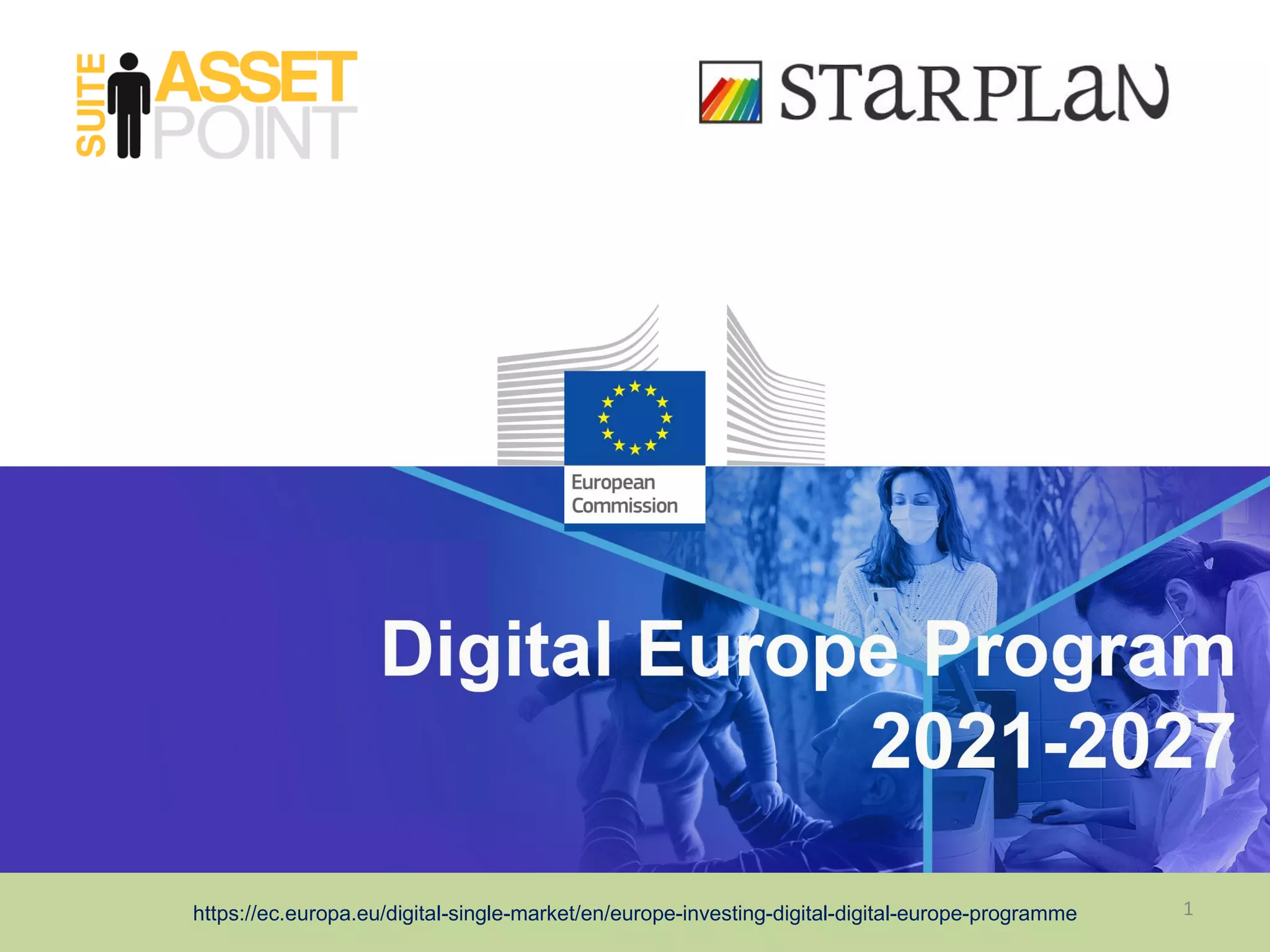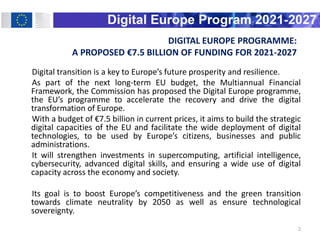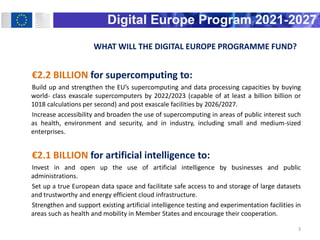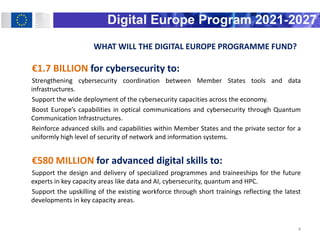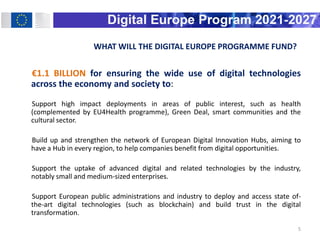The Digital Europe programme is a proposed €7.5 billion EU funding programme for 2021-2027 to accelerate Europe's digital transformation and build strategic digital capacities. It aims to strengthen investments in supercomputing, artificial intelligence, cybersecurity, and digital skills. The programme would fund the development of exascale supercomputers, establish a European data space, support AI testing facilities, strengthen cybersecurity coordination, and provide advanced digital training programs. The overall goal is to boost Europe's competitiveness, technological sovereignty, and green transition towards climate neutrality by 2050.
